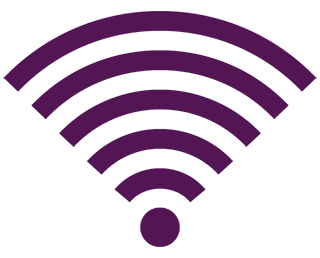Why can't I access the Internet when I have a Wi-Fi connection?
Answer: You're at the local coffee shop and you connect to the building's free Wi-Fi signal. In a few seconds, your computer displays an icon similar to the one below showing that you successfully connected to the Wi-Fi router. But when you open your browser, no websites respond. Why can't you access the Internet when you have a strong Wi-Fi signal?

The reason is that a Wi-Fi connection and Internet access are not the same thing. Even if you connect to a wireless router, it doesn't guarantee you'll have access to the Internet. The router must be connected to an Internet access device, such as a DSL or cable modem, or have one built in. The modem must then be connected to an ISP and cannot have any firewalls blocking your connection.
Therefore, a strong Wi-Fi signal is only one piece of the puzzle when connecting to the Internet via Wi-Fi. This also explains why your Internet access may be slow or sporadic even though your device displays full bars for your Wi-Fi signal. While your connection to the wireless router is solid, if several other people are using the same Internet connection, your Internet access may be very slow. This can happen if multiple people at a coffee shop access streaming media or are downloading large files, for example.
If you successfully connect to a Wi-Fi access point, but you can't access the Internet, their are two likely culprits: 1) A firewall is preventing you from accessing the Internet or 2) there is a problem with the modem. You can politely ask the person in charge of the router (such as the coffee shop manager) to restart the router and modem. In many cases, a simple power cycle will fix the problem.
 Home
Home